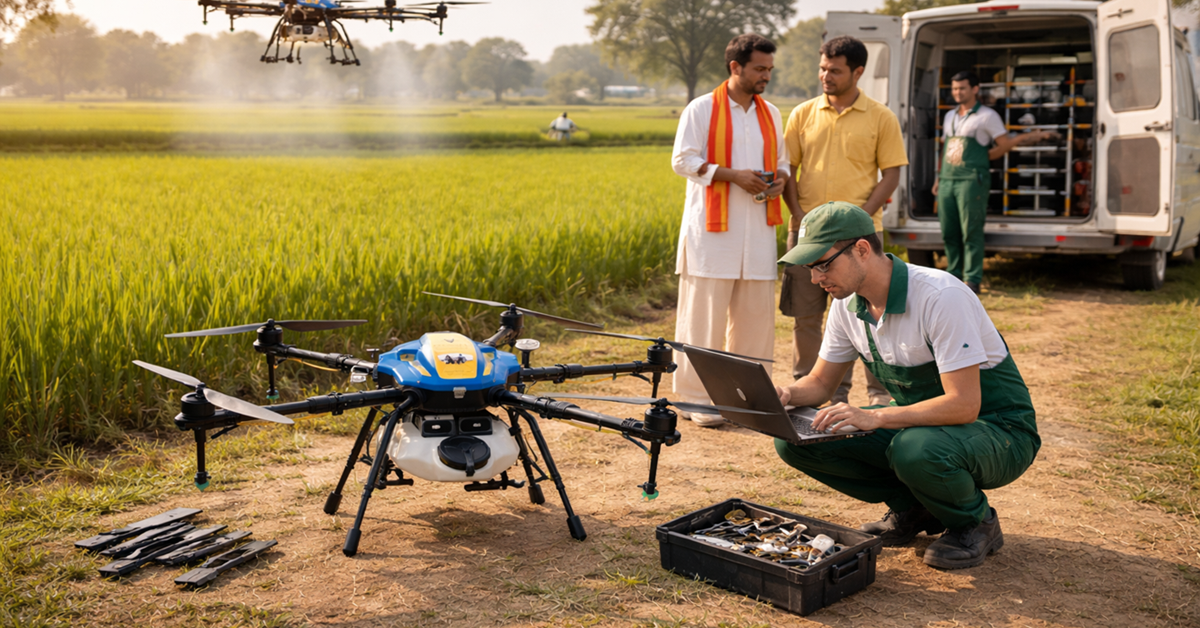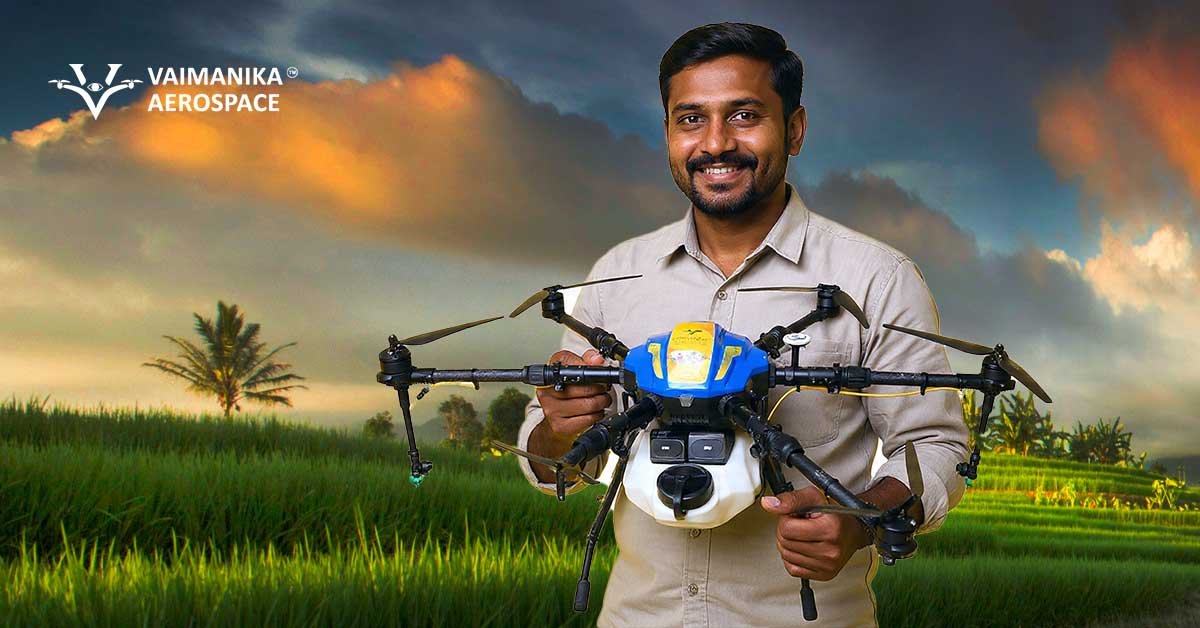Introduction
The rise of agricultural drones is not only transforming farming practices but also creating new career opportunities. As drone technology becomes an integral part of modern agriculture, skilled drone pilots are in high demand worldwide.
Farmers, agribusinesses, and government initiatives are increasingly hiring certified drone operators to conduct crop monitoring, pesticide spraying, and precision farming operations. With agricultural drone-related jobs on the rise, this field presents lucrative career prospects for aspiring professionals.
The Growth of Agriculture Drone Piloting as a Profession
Agricultural drones have significantly impacted farming efficiency, driving the need for trained operators who can:
-
Navigate drone flight paths for precision crop analysis.
-
Interpret data using AI-powered analytics for yield optimization.
-
Perform aerial pesticide and fertilizer applications.
-
Monitor soil health and irrigation systems remotely.
With automation and AI revolutionizing agriculture, drone piloting has emerged as a specialized skill within the industry.
Why Drone Pilots Are in High Demand
1. Rising Adoption of Precision Agriculture
Farmers are increasingly investing in drone technology to boost efficiency and sustainability. Drone pilots help bridge the gap by operating drones professionally, ensuring:
-
Accurate data collection for soil assessment.
-
Effective pest and disease monitoring.
-
Cost-efficient crop spraying techniques.
2. Government and Industry Support
Many governments worldwide, including India, the U.S., and China, are promoting the use of agricultural drones by offering subsidies and training programs. These initiatives drive job creation in rural areas, empowering workers with tech-driven agricultural skills.
3. The Need for Skilled Operators
Unlike traditional farming roles, drone piloting requires technical expertise, including:
-
Understanding GPS mapping and flight regulations.
-
Operating multispectral cameras for crop analysis.
-
Interpreting aerial imagery to optimize farm yields.
As drone technology advances, specialized training is essential to meet industry demands.
How to Become an Agriculture Drone Pilot
1. Obtain Drone Certification
Drone pilot certifications vary by country. In the United States, professionals must acquire a FAA Part 107 license, while India requires DGCA approval for commercial drone operations.
2. Enroll in Training Programs
Aspiring drone pilots can join agriculture-specific training programs, such as:
-
Precision agriculture drone courses offered by universities.
-
Industry workshops focusing on drone analytics and farm management.
-
Online certifications providing hands-on drone flying experience.
3. Gain Practical Experience
Farmers and agritech firms prefer drone pilots with real-world experience in managing aerial farm surveys. Entry-level pilots can gain expertise by:
-
Assisting local agricultural drone operators.
-
Partnering with agritech startups for pilot projects.
-
Participating in government-sponsored drone pilot training camps.
The Future of Agriculture Drone Jobs
1. Expanding Career Paths
As agricultural drone adoption grows, job roles beyond piloting are emerging, such as:
-
Drone Data Analysts – Interpreting aerial imagery for farm optimization.
-
Precision Agriculture Consultants – Advising farmers on drone-based techniques.
-
Drone Technicians – Repairing and maintaining agricultural drones.
2. The Role of AI and Automation
Future drone pilots will integrate AI-driven analytics into farming decisions, transforming traditional roles into data-driven specialists.
3. Global Market Expansion
Agricultural drones are projected to penetrate new markets, particularly in developing countries where food security and efficiency are critical concerns. The job demand for drone pilots in these regions will continue to rise.
Conclusion
The agricultural drone industry is creating exciting career opportunities, with trained pilots becoming essential in modern farming. As adoption accelerates, drone pilots will play a critical role in shaping precision agriculture, promoting sustainable farming practices, and bridging the gap between traditional agriculture and cutting-edge technology.
Those looking to enter this field can explore certification programs, gain hands-on experience, and prepare for a promising career in agricultural drone operations.





